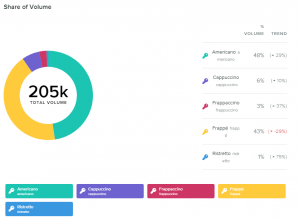
MichaelGaida / Pixabay
Business adversity comes with regularity but the world we live in right now seems particularly challenging. Whether it’s a small budget or competing against bigger well-established rivals or external challenges, success doesn’t come easily. If it did, every business would succeed. Still, no one foresaw a situation such as a global health pandemic that has obliterated the world’s most valuable economies. Today, we share 5 tactics to guide your business through adversity.
One thing successful entrepreneurs learn is that the world of business is unpredictable. Your venture may roll along nicely, turning a hefty profit, yet that doesn’t mean your business is invulnerable to threats that may mean failure. When you run into challenges, you must lead with authority and guide your business through the storm.
Some people say that crisis management is innate and can’t be taught. Don’t listen. Yes, the key to crisis management is to not panic during a turbulent period, as your emotions may force you to make uninformed decisions. Developing a contingency plan ahead of a crisis puts you in a much better situation since you’ve already thought through how to handle the crisis.
Granted, no one predicted the situation we find ourselves in today, but with a consistent strategy, you’ll survive. Here are the steps that could help guide your business through a storm, whether it’s another COVID-19 outbreak or a new challenge.
Apply For government support
As a self-starter, you probably don’t enjoy the idea of asking the government for help. You launched your business with a can-do attitude and limited resources, so you’re not looking for handouts. Of course, a federal grant isn’t the equivalent of the current administration looking down at you from its pedestal.
Support from the government benefits society as it does your and your employees. Remember that SMEs are the beating heart of the economy. If you and other businesses similar to you fall, the economy takes a massive hit. In reality, applying for grants and other government support in this time of crisis benefits everyone.
If you’re still uneasy, define the difference between help and handouts. Mostly, government support involves bank loans that you must pay back with interest once the economy allows you to turn a profit. Often the rates om these are lower, but the money isn’t free. Therefore, take advantage of a low-interest rate to inject the firm with much-needed capital as a savvy way to avoid chapter seven or eleven bankruptcies.
Also, consider the social and cultural impact of not applying for government-certified programs. Employees lose their jobs when you can’t afford to pay their salaries.
Master marketing
While it’s tempting to eliminate marketing expenses in a crisis, this isn’t the right strategy. It’s tempting to view eliminating marketing as realistic, especially when everything else around you fails and bills pile up. Although you must rank priorities, you shouldn’t dismiss the company’s marketing strategy as insignificant. You must connect with audiences more than ever during a crisis since you rely on shoppers to keep their doors open.
To help guide your business through a crisis, start with a sound marketing program crafted through years of effectively managing these marketing tasks, among others:
- brand image
- corporate social responsibility
- high customer satisfaction
- low employee turnover
- innovative products
Now is the time to evaluate market performance and consider new marketing tactics to improve that performance. Learning new marketing tools isn’t easy so Drop Cowboy is on hand to help with SMS marketing and ringless voicemail software that might make great additions to your marketing. Unobtrusively spreading the word about your products, services, and promotions encourages audiences to convert.
Targeting phones and mobile devices is a savvy tactic because 98 percent of people in the US currently have access to SMS- capable phones. That’s a demographic that you shouldn’t ignore, even when times are tough!

Photo by Roman Pohorecki from Pexels
Adapt your business model
Rather than zeroing out your marketing expenses, think about changing your business model to capitalize on problems consumers face related to the crisis. Guide your business through the challenges facing them by thinking outside the box.
For instance, firms move their retail online or switch production to products deemed necessary during the crisis. An example is a local brewery that switches to selling antibacterial products with high demand not met by existing companies rather than beer they can’t sell because the pandemic shut down their brewpub.
During a crisis, there is no room for sitting around and wallowing in self-pity. While you may find it tempting to just throw in the towel, that’s only because it’s easier than the alternative – innovating. With an inferior product and little demand, you must create a new business model to grab people’s attention by filling a need not currently satisfied by existing products.
The foundation of evolution is to adapt to the times. Right now, businesses use the Coronavirus pandemic to their advantage by opening delivery services, transitioning to drive-up or drive-through service, selling online, or using their excess capacity for good, such as restaurants delivering food to front-line workers or donating meals to those less fortunate.
For those struggling to change their business model, consider factoring in the power of goodwill. Helping others through a difficult period enhances your image in the community. Although this may not be useful in the short-term while everyone is struggling with job loss and the pandemic shuttered businesses, you reap rewards in the long run through your generosity today, because customers A) support businesses with high ethical values, and B) have long memories.
Put morale before profits
A crisis means a crossroads for businesses. On the one hand, you have a duty of care to your employees who depend on you to pay their wages and maintain a roof over their heads. On the other, the company must make money, which often means layoffs are inevitable. The trick for surviving the crisis in the best shape possible is to balance your need to pay bills with your responsibility to employees.
Employees form an integral part of your operation as they perform the everyday tasks that ARE your business. With that in mind, you don’t want morale to slip to the point where remaining employees lack motivation and become unproductive. Worse, cutting wages and hours forces your best employees to consider other outlets for their labor. Once you return to full health, if you haven’t supported your employees during the crisis you may find you’re competing in a strong labor marketing to hire enough staff.
Be open and honest in communicating with employees. Nothing is worse than uncertainty, even if the news is bad news. Don’t hide problems from your staff and give realistic estimates of when they will return to work if you have to lay them off.
That’s why you sometimes have to put the team’s morale over an opportunity to make money. Being open and honest makes the atmosphere less toxic, and highlights a rationale for trusting you. Supporting a general lack of trust generated by poor employer actions, Tint post points out that almost 80% of employees don’t trust their employers. Developing great employee relationships should guide your business through both good times and bad.
The picture was taken by Pexels from Pixabay
Unplug
A crisis is twenty-four-hours a day of non-stop work over seven days a week for the foreseeable future. When you add the media response to multiple problems faced in almost every country to the stress of uncertainty, you and your employees face serious mental challenges.
Burnout is real. Employees who feel burned out easily suffer from stress and anxiety that, in turn, inhibit their creativity, lead to absenteeism, and result in a situation where making good decisions is difficult. According to Healthline employees facing burnout suffer “decision fatigue” and lack the inspiration to continue.
While it seems counterproductive, the best way to combat burnout is to unplug. Switching off for a couple of hours per day provides the recharge you need to stay sane. Yes, this includes not checking your phone or laptop for messages and emails and going to bed at a reasonable time to ensure you’re well-rested.
These hacks are small, yet they aren’t insignificant. Unplugging from a crisis and stepping back may make the difference between success and failure.
Business & Finance Articles on Business 2 Community
(215)







